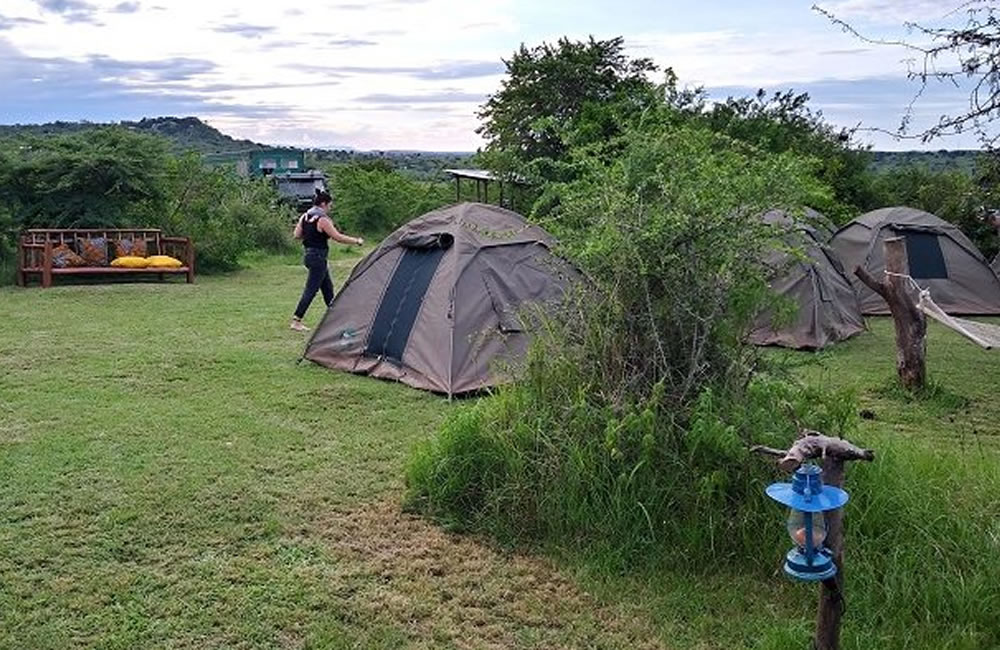
Bush Camping in Murchison Falls National Park
Put quite simply, bush camping in Africa is not for the faint of heart. That said, all you have to do is show up, pay a fee, and be willing to spend the night in a flimsy tent surrounded by some of the most ferocious predators the world has to offer. Yet even though it sounds daunting, in reality it’s one of the most enjoyable and relaxing activities you can do in Uganda’s National Parks.
In this instance, we tried bush camping in Murchison Falls National Park. We camped on both the south and north side of the park. In the Red Chili’s Campground on the south side, you will have access to basic facilities such as shower and bathrooms. Here you are likely to run into warthogs, hippos, baboons, an array of birds and different types of antelopes. Lions are on the other side of the river so no need to worry about them. However leopards have been spotted nearby.
Since it is a national park there are no fences. This means that it’s quite likely that as you lay in your tent, an animal or two might walk near you. We heard some creature of unknown origin sniffing near the tent, (if this happens, do not get out and look. Stay in the tent and remain quiet and calm). Even if you don’t get anything nearby, rest assured you can always hear hippos snorting and chortling off in the not-too-far distance.
Take a game drive on the north side of the park, and then time to look around, because this area of the par is where the camping gets real. You must let reception know that you plan on camping here because an armed guard is required to escort you. You can pick one up from the entrance or there are outposts you can drive to where one will be waiting for you.
We drove with our guard and settled into our designated campsite. High trees surrounded us and a fire pit sat in the middle. The first thing I heard as we piled out of the vehicle was the cocking our guard’s rifle. Within five minutes we had a roaring fire. Just behind the forest line we could hear the hippos snorting and grunting. “Hear that sound” he laughed, “they are scared of the fire and cannot pass through the camp. That is why they are so loud.”
“What should I do if a hippo or lion comes into camp?” I asked.
“You do nothing. You don’t move and I take care of it.” He pointed to his gun, “I will chase them out. But don’t worry, with the fire they will stay out. All animals are instinctually scared of fire.”
Got it, the fire was my safety net. We drank some beers, watched the stars (which were their own spectacular show) and listened to the sounds of the park. You really can get an idea of what life would have been like before the rise of cities. That for all of our technology and advancement, if you put a human in the middle of the wilderness, everything is faster, stronger, and better adapted than you. Well, better adapted than us, our guide fit right into the surroundings, trudging into the bush with little fear to collect firewood and secure the campsite throughout the night.
Wake up at dawn and you have the park entirely to yourself for almost an hour. Even those staying in lodges on the north side of the Nile have a 45-minute drive to the delta. It is a spectacular place to sit and watch the sun rise, as hippos return to the river for the day. This is the best time to spot those lions you’ve likely heard roaring throughout the night.
Camping this close to nature might not be for the faint of heart, but it’s an experience not to be missed. It is from this level that you can truly immerse yourself in the beauty and wilderness of Uganda. For those really looking to get back to nature, it’s an experience that can’t be beat.
To get to Murchison Falls you can hire a Uganda car rental or even drive yourself up to Kafu and then go west towards Masindi. After Masindi follow the signs and turn right, which takes you to a long dirt road and into the park. Entrance is 35USD a day for a tourist, 20USD for a resident and 5,000UGX a night for an East African.
Camping in Red Chili’s Campground will run 10,000 UGX a night. They also have a full bar nearby where you can grab a bite to eat and gain your liquid courage for camping.
Camping on the North side of the Nile requires an armed guard and will run much higher at 40USD per head each night. Even then it is advisable you tip your guard 10-20% as they don’t actually see the majority of that fee. There are no facilities on the North side and you must pack out everything you pack in. So make sure you bring plenty of water and food for your stay. Happy camping!
Read More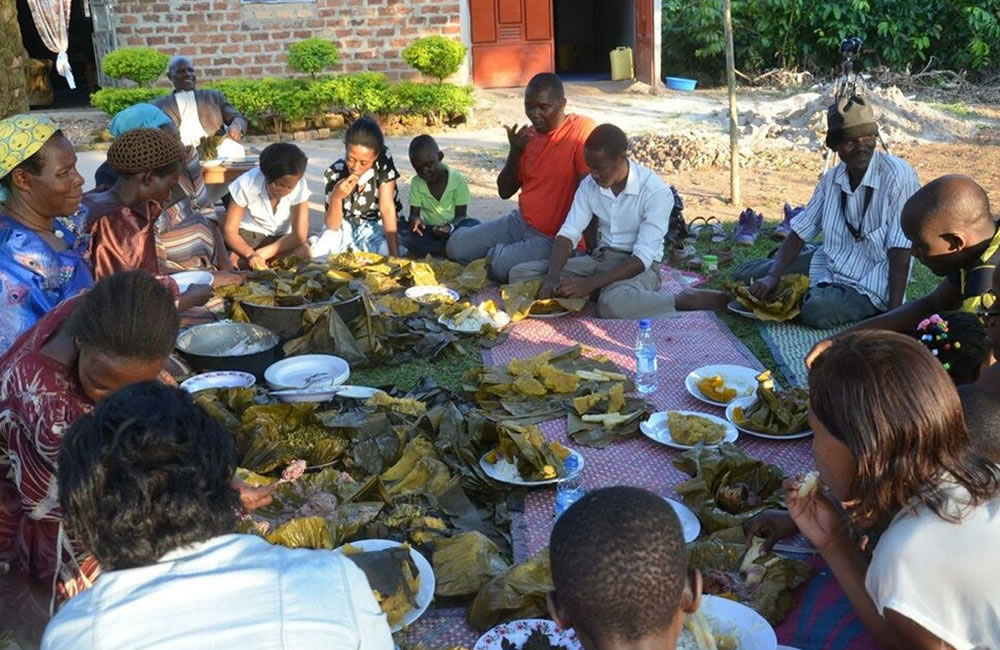
Experience Baganda Culture at Entanda Cultural Village
With over 56 unique tribes within a small country like Uganda, a tourist interested in experiencing culture has a wide range of options to choose from. The most interesting thing is that each of these tribes has different cultural traditions, dances, traditional foods/dishes, marriage rites, traditional songs, local building architectures and lifestyles, handcrafts and musical instruments (such as drums) that make them stand out from the crowd. Uganda takes pride in more than 650 designated cultural sites and monuments recognized as important and has two (2) UNESCO World Heritage Sites and other 8 sites that are still pending approval.
One of the most interesting cultural experiences in Uganda is the Entanda Traditional Hinting and cultural experience. This Cultural experience is possible within Kijjude Village within Mityana District. From a distance, tourists who visit Uganda for Cultural Safari hear the interesting sounds of the Traditional dances, which sound louder as you go closer to the fascinating Kijjude (Entanda Village). The traditional songs with the local community members dancing with the songs providing an exhilarating and fascinating welcome to the tourists who visit the Village. The Local People of Entanda Village provide buffets of their best quality sorted fresh and Organic fruits such as pawpaw, jack fruits, guavas, mangoes, yellow bananas, oranges, watermelons, harvested direct from their gardens as a way of welcoming their visitors. You can also pack these fruits when leaving the Village.
Tourists who visit this Village can participate in some of the local games such as “omweso”, bow and arrow shooting competitions, and also learn how to play the interesting “Sekitulege”-a local musical instrument that has existed for over 600 years.
You-especially men will also be taken to the Hills, swamps, homesteads and some of the forests to learn how to hunt some of the animals. These locals display how most of the activities are done right from carrying the hunting tools (bows, arrows, spears, horns and Pangas). Throughout the hunt, some of the animals will be identified by the locals but you will not be allowed to kill them mainly to allow the animals’ numbers tom increase. As the male tourists go hunting, the female ones remain behind with some of the village women, where they will be taken to the gardens to harvest organic food. These women demonstrate how some of the traditional food especially matooke is prepared as they wait for their husbands to return from hunting.
As the food is put on fire, the female visitors are led by the aunties (Sengas in Luganda) to the bush to be taught about marriage and home management issues. The Sengas teach tourists some of the traditional ways of taking care of their husbands, how to utilize some traditional herbs to treats most of the common ailments and how to handle a home in a real “Kiganda” way. This is where serious bedroom affairs will be discussed ton detail, and will make you understand why these women stay married until old age without divorcing. By the time the men return from hunting, the mouth-watering food is ready and served hot.
After the delicious meal, tourists can be led to the gardens to learn about some of the local herbs or to the local winery to process and taste the local wine, you can also choose to join some of the herdsmen to graze cattle or participate in milking of the cows using hands. The highlight of the Entanda cultural experience is a football match between the locals and tourists and that will be the end of your exciting cultural experience
Read More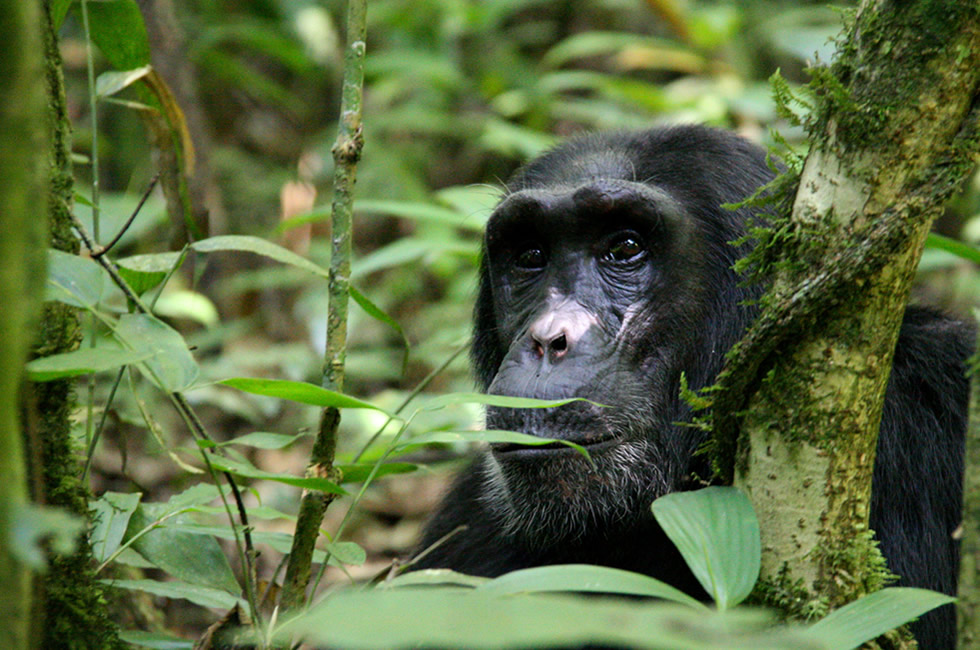
Getting Up close and personal with Uganda chimpanzees
From the spectacular mountains to the rivers, lakes, wildlife, lash wilderness, thick misty forests, and to the friendly faces, Uganda truly deserves to be referred to as the pearl of Africa. Sure, the country is endowed with every bit of Africa’s tourist resources.
Uganda is home to many things: the rare mountain gorillas, Africa’s longest river, and now also prides in being home to about 5,000 chimpanzees scattered in different parts of the country.
These dramatic primates are the closest to humans, sharing with DNA of about 98 per cent. This means that they pretty much act and reason like humans, with their intelligence equated to a five-year-old child. Chimpanzees are social animals and live in communities headed by an alpha male.
Sadly, chimpanzees are top on the world’s list of endangered species, their threat to survival being typically from humans, their very own cousins. They are captivated, especially the babies for pets, poached for their meat, and the deadliest of all being the destruction of their natural habitat through deforestation, which has left a number of chimps homeless and vulnerable.
Where to find them
Chimpanzees are found in focus tourist areas of Kyambura gorge in Queen Elizabeth National Park, Semuliki National Park, Budongo forest in Murchison Falls National Park, Bwindi Impenetrable Forest, and Kibale Forest. Kibale forest alone has the highest concentration of about 1,500 individuals and it’s the best place to meet the chimps. Other places include the Uganda Wildlife Education Centre and the Ngamba Island Chimpanzee Sanctuary.
Ngamba Island takes care of the orphaned, abandoned and rescued chimps until a certain point in time, when they are reintroduced to the wild. All these places are open to tourists who wish to spend time with the chimpanzees.
How to spend time with the Chimpanzees
One can spend time with these dramatic apes through the following activities; Chimpanzee trekking, Chimpanzee habituation, care giving, and viewing of the feeding. Meeting with nature is always an incredible experience but spending time with man’s cousins is certainly an out of the world experience.
Chimp trekking
Chimp trekking is an exercise that involves trekkers walking through the rainforest searching for the chimps in their natural wild. The trekkers are always escorted by a trained rangers from Uganda Wildlife Authority who are usually knowledgeable about the location of the families. Trekkers get a chance to watch the already habituated families up-close for one hour though the entire exercise takes about two-six hours.
Kibale Forest National Park is the most prime of all, consisting of many families. One cannot certainly miss to see the chimps. Other places include Kyambura Gorge, Budongo Forest and Semliki National Park.
Chimp habituation
Habituation is a process where wild animals are tamed to harmoniously co-exist with humans. In this case the extremely wild and aggressive families of chimps are slowly and technically made to get familiar to humans. It usually takes about two years for the chimps to fully adapt although it is important to note that wild animals are just that — wild. Thus they need their space. With this, the Uganda Wildlife Authority established a set of rules and regulations that trekkers must strictly observe while with the chimps.
Chimp habituation gives visitors a chance to spend more hours or even a whole day with these primates right from the time they awake to the time they retire to their nests. This activity is only done in Kibale Forest National Park and Budongo forest in Murchison Falls National Park.
Care giving
This is done at Ngamba Island Chimpanzee Sanctuary where visitors participate in care taking of the chimps, from preparing the food, to serving, and carrying out medical routines, and updating the chimp diaries. This is by far emotional and interesting.
Feeding the chimps
Still done at Ngamba Island but this time visitors don’t get hands on but rather, they watch from the visitor’s platform as the chimps are being served with food, mainly fruits. There are lots of performances from the chimps too, as they display different survival skills as each member struggles to grab the fruits first and the most aggressive gets the lion’s share.
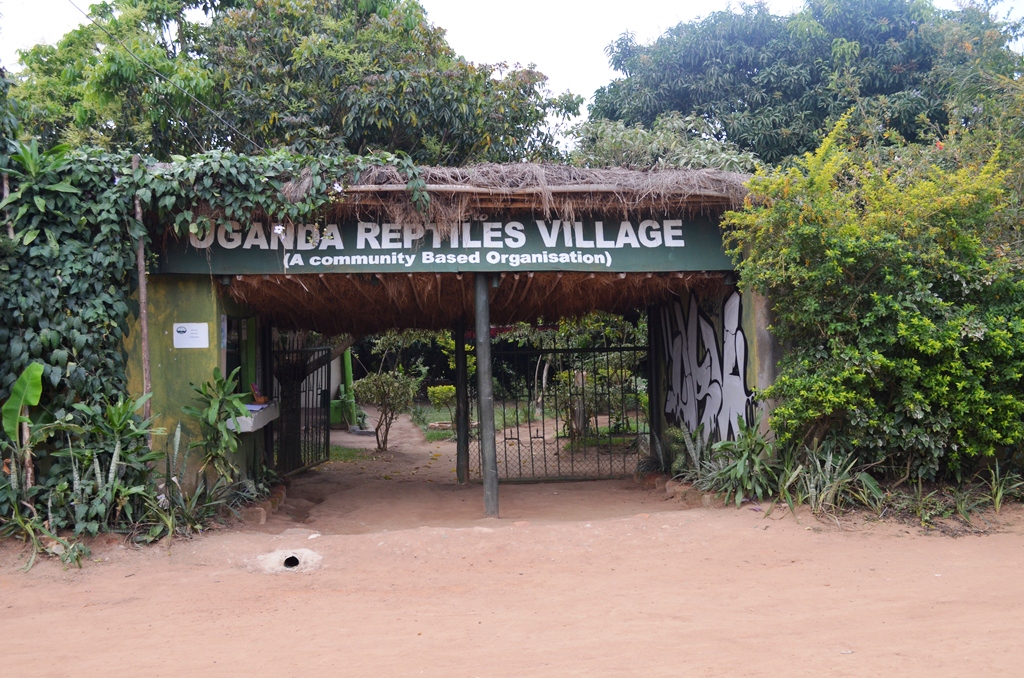
Have you been to the Reptile Village?
There is a little place hidden straight off the Kampala-Entebbe highway that only the brave dare go to, a place filled with things that the brave love frolicking with.
With lush green gardens, you will not expect to be jumped at by something that has been supposedly man’s enemy for generations.
It is the Uganda Reptile Village, a place that you would not expect to go to for a holiday in Uganda, yet one of the most thrilling places to spend a whole day learning about these misunderstood creatures that usually stay hidden or when seen they incite terror in most human beings. The founders of the village state that their main objective was to educate people about reptiles and at the same time have a habitat where they can learn about the many different species that can be found in the country.
The village was established in 2002 by Yasin Kazibwe, a reptile expert who is also reported to have rescued close to 38 different species of snakes that he relocated to the habitat between 2003 and 2008. Mr Kazibwe also wrote a “Snake bite” guide book and made a number of reptile documentaries.
At the village you will be sure to find a number of reptiles indigenous to Uganda such as snakes, chameleon, tortoises, monitor lizards and of course crocodiles. They are all kept in their respective cages with the crocodile enclosed in a huge pond.
Like in most African countries, whenever snakes or crocodiles are found they are either captured or killed but this village provides a safe haven for this poor creature.
Most of the reptiles found on the ground are mostly rescued from near death and brought to the village to be taken care of. It is even more interesting when you see the several chameleon species in a cage changing colours as they crawl around their home, such a beautiful sight to behold.
Most visitors to this place rush to the snake section. Even those with a phobia for reptiles would want to see them out of curiosity and there is a big chance of petting a python and the peaceful tortoises that are children’s favourites at the village.
The village will kill your fear of reptiles, especially snakes, with educational tidbits given by caretakers during the visits about what the animals are and about their nature. The best part about this tour is that it is something you do not expect to do, but you will find yourself enjoying every little information that you did not know about some of the species of reptiles that we have in Uganda. You will be shocked to know that not all snakes are killer snakes. For instance, there is one called the egg eating snake that is non-venomous and solely eats eggs and at the same time you will find the beautiful three horned chameleon.
The village can be found 3km from the main road.
Read More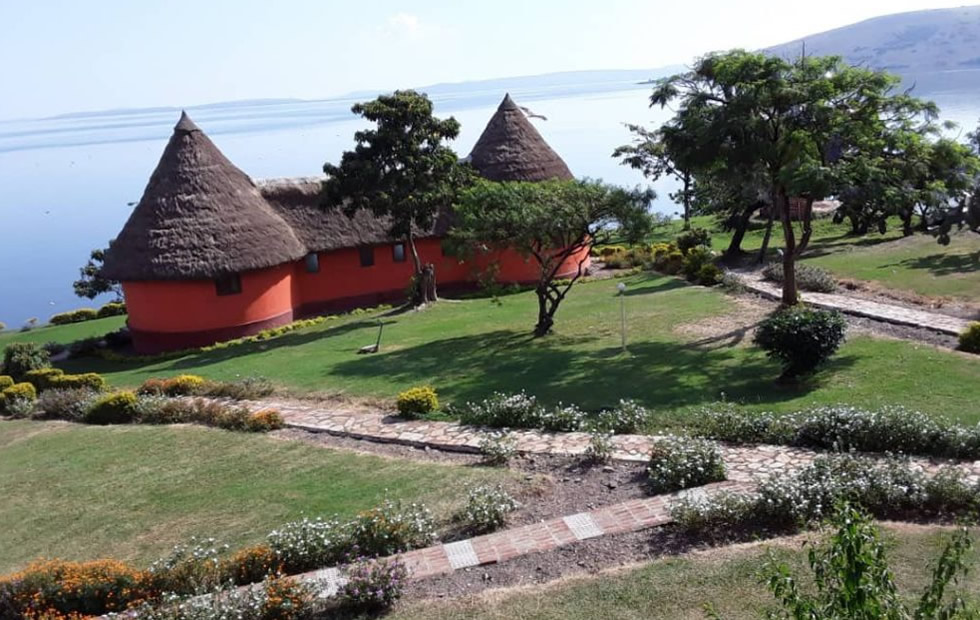
Experience Jinja & Samuka Island Retreat
Samuka island retreat is a beautiful offshore resort located in Jinja approximately 20 minutes by boat ride from the source of the Nile. Samuka Island offers perfect accommodation in Jinja for both business and leisure travelers. This beautiful resort hotel in Jinja also offers bed and breakfast options for travelers intending to spend one or two nights in Jinja .Samuka island retreat is the perfect get away for honeymoon couples seeking a relaxing, peaceful and yet beautiful destination for your tours in Uganda. Speed boats to Samuka Island via the source of the Nile are available at the Rumours bar located at the source of the Nile.
A paradise away from home! Fantastic customer care. Breath taking beauty! I couldn’t ask for more. The weather is perfect and the place is relaxing. Big island, great food from the friendly chef, this is the perfect getaway. Don’t go alone! Go with your loved one(s) and enjoy the scenic beauty together. The boat ride from Jinja source of the Nile is great in the new boat- awesome!!
Samuka Island Retreat is a boutique lodge within a bird Sanctuary with over 50 species of birds. Samuka Island is just off the shores of Jinja, Uganda, only one and half hours away from Kampala but a world away from the crowd. A gentle boat trip from Rumours at the Source of the Nile in Jinja will take the discerning traveler to Samuka Island. With a spectacular waterfront setting, natural beauty, and the option of relaxing in a secluded spot, all combine to make your stay the perfect way to refresh the mind, body, and delight the senses.
Spending Christmas season and vacation with family members at Samuka is what every family would wish to have ,this place is so naturally beautiful, it has a nice water view ,big compound for the children to run around playing and also beautiful sceneries ,the meals are nice, comfortable cottages and also there swimming pool is nice.
The major attraction in Jinja is the River Nile itself and the series of grade five rapids popular for white water rafting. Jinja is the fourth largest town in Uganda and lies about 50 miles east of Kampala on the shores of Lake Victoria.
While on your tour in Uganda including the vacation in Jinja, Wild waters Lodge is a lovely new property situated on an un-spoilt island in the Nile, in the Wild waters Reserve. Nestled amongst lush rain forest vegetation are ten spacious rooms, all of which make the most of the views.
The tented rooms are vast, with wooden floors, thatched roof and a spacious balcony with a double roll top bath. Inside you will find a king-sized four-poster bed with mosquito nets, comfy armchairs and a queen-size daybed as well as an en-suite bathroom with shower. The main lodge and dining area are flanked by the spectacular Hypoxia River rapids to the right and the Kalagala Falls on the left.
There is a lovely swimming pool which also makes the most of these dramatic river views. Other facilities include a day spa, a library with books, games and videos, laundry facilities, and in-room dining. This is a wonderful place to relax for a couple of days, particularly after an exciting safari in Uganda. If you wish to be more active, there is plenty to keep you busy, including guided walks, guided fishing, river rafting, jet boating, kayaking and horse-riding.
It is most exciting to experience white-water rafting on the source of the Nile. It’s easy to arrange a day’s excursion rafting starting at Bujagali Falls and finishing 20 kilometres downstream at Itanda falls. The route includes nine major rapids, of which four are a grade five. In the quieter sections you can float along enjoying the bird life on the shore of the river, and taking a swim at the side of the raft. If you’d rather something a little more relaxing, it’s possible to do a family float trip which avoids the major rapids and takes a slower approach at enjoying the river.
Looking to make the most of a fine day? Enjoy an afternoon outdoors at Source of the Nile River or Bujagali Falls. Breathe in the fresh floral aromas or read the paper in one of these great places. Plan to check out Nile River Explorers, an idyllic place for relaxation. When the sun is shining, this pretty destination is worth the visit. Slip back through the mists of time at Source of the Nile – Speke Monument, one of the most fascinating pockets of history in Jinja.
Consider a guided tour, take photos and learn about some of the significant events that helped shape this region. The Jinja Temple is a glimpse back in time. Linking culture and history, this revered building is well worth your time. Take a little time out to visit Speke Memorial Monument, and learn about this place’s place in the history.
A vacation is no reason to stop working on your game when staying in Jinja. Spend some time at the Jinja Golf Club, where you will find the best greens and the nastiest bunkers in the region. Grab your lucky seven irons and attack the bunkers, then share a story or two with fellow golf fanatics in the clubhouse.
Read More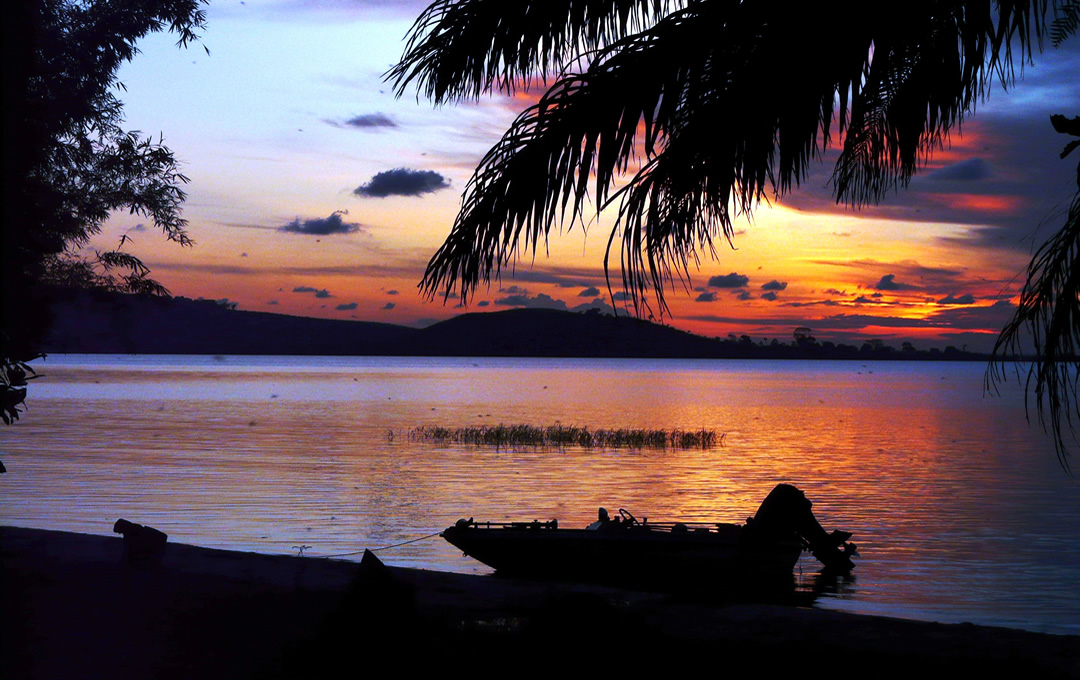
New in Uganda: Jazz on the Island
Ugandans love having a good time; it is quite evident when you see a new festival sprouting up every weekend or so. The best part about most recent events is the ability of the organisers to make them more destination-based hence more appealing to the revellers. Fusing travel with music is a brilliant idea that most event managers are starting to sell as a concept to a certain demographic of Ugandans — the young working class who are hungry for new experiences.
There is something freeing about enjoying music whilst frolicing with nature far away from the hustle and bustle that you have been experiencing every day. There is a feeling of freedom and, even better, meeting new people in celebration of a good weekend.
The newest of these festivals is called “Jazz on The Island”, which promises to treat revellers to great music from some of the most talented instrumentalists the country has to offer.
“We have always organised leisure trips to the island but without any major concept attached to them. This time round the major question was why would I want to go to the island and what kind of crowd am I targeting and that’s why I came up with the idea of Jazz on the Island,” says Noel Agaba, one of the organisers.
The event, which will take place on November 4 at the Ssese Habitat Resort, Ssese Islands, is expected to attract a huge number of jazz and travel enthusiasts who are willing to part with Shs300,000 for a weekend of fun.
The Ssese Islands are a collection of islands on Lake Victoria and they have become some of the best vacation destinations for Ugandans and tourists. The islands have different accommodation choices for visitors, ranging from banda lodges, dorms, B&Bs and actual hotels with good facilities that can give you a relaxing weekend of unwinding.
Accessing the islands is not difficult since you can get a boat or ferry from different locations; starting from Ggaba, Mukono, Luzira, Masaka and Entebbe, which can cost you approximately Shs14,000 per person for a one way trip depending on where you are picked up from.
Jazz is a laid-back genre of music and the fact that it is even better done live makes it more appealing. The genre displays great skill and talent and this can be seen through the artists that were selected to entertain the travellers.
The organisers plan on holding this event after every three months to target a crowd filled with music lovers and ardent travellers. The line-up of artists for this edition include the Jazz Freak Band, Happy K, Michael Kitanda, Allan Toniks and Jackie Akello. These are artists whose immense talent shines through every performance they put up and because people can easily relate with some of their music.
One would wonder how Toniks, an artist most Ugandans have not heard from in awhile, fits into a Jazz event, but it’s an irrefutable fact that his vocal maturity and talent with the guitar places him above some of his peers. Noel Agaba further states that: “Our major aim is to appreciate and promote live jazz music across africa, promote tourism and have some fun.”
On Friday, November 4, the buses will depart from the National Theatre and head to Entebbe from where travellers will board a ferry that will take them straight to the island. Aboard the ferry, travellers will be provided with a fully-stocked bar with entertainment and a BBQ on the house. On arrival, all Guests will be checked into their rooms at the Ssese Habitat Resort where dinner will be served and music played by DJs later on in the night. The rest of the days are planned for excitement and fun for all the guests with activities such as beach games, bike riding, boat cruises, nature walks, quad bikes and board games, to mention but a few.
All this, including transportation, food, entertainment and accommodation fall under a meager price of Shs300,000 for singles and Shs550,000 for couples.
Read More